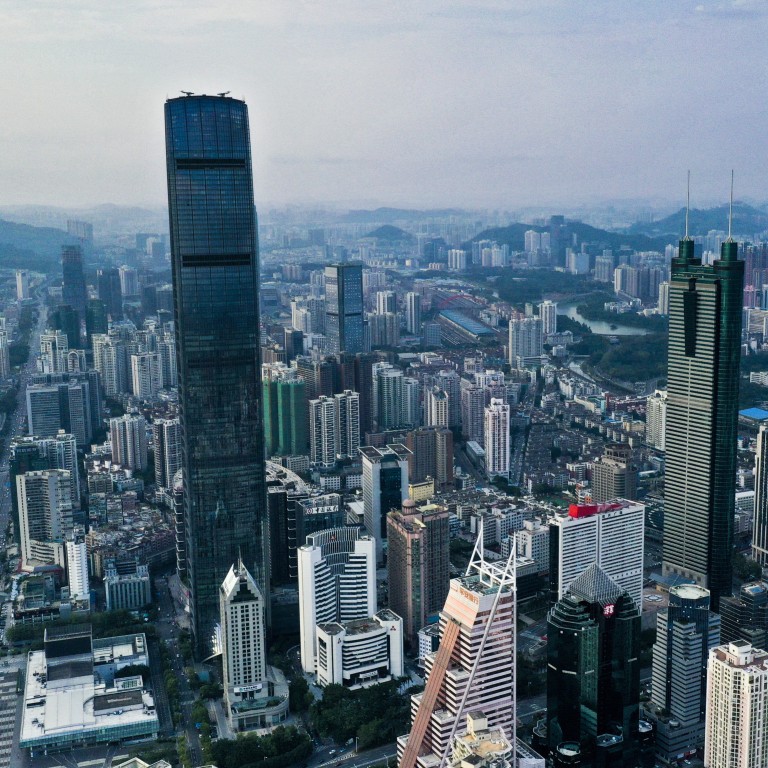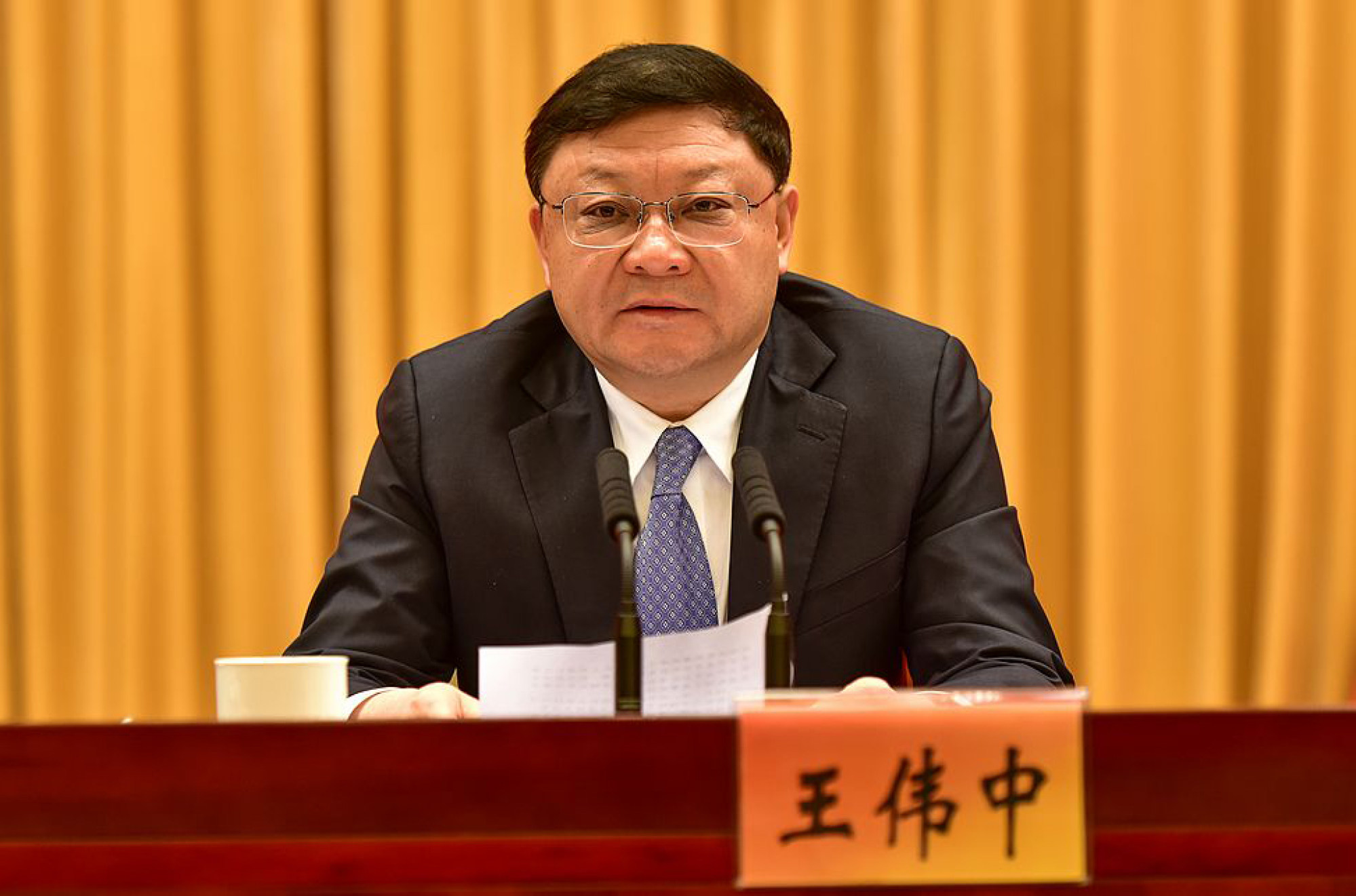
Shenzhen party boss takes over as acting governor of Guangdong province
- Promotion is expected to pave the way for Wang Weizhong, 59, to become a full member of the policymaking Central Committee
- As China’s top exporter, southern province will be under pressure to keep its economy on a steady course next year, observer says
Already an alternate member of the party’s policymaking Central Committee, the promotion is likely to pave the way for Wang to become a full member at next year’s national congress – a twice-a-decade event that is expected to usher in major leadership changes.

Wang was appointed Shenzhen party chief in 2017. A year later the city’s economy overtook Hong Kong’s and it has continued to expand at a relatively fast pace.
In 2014, Wang was among a raft of officials who were parachuted into the central province of Shanxi in the wake of a “landslide of corruption scandals” that brought down nearly half of the resource-rich region’s leadership.
He became a member of the provincial party committee in September that year, and party boss of Taiyuan two years later.
Wang has previously held positions at the Ministry of Water Resources and the Ministry of Science and Technology.
Peng Peng, vice-president of the Guangdong System Reform Research Society, a think tank, noted that Wang and his predecessor Ma had similar technical backgrounds and both had been Shenzhen party secretaries.
“This shows that Beijing’s key expectation and demand for Guangdong is [to maintain] stability,” Peng said.
“Furthermore, consumption has been poor this year. As a major economic province with more than 120 million people, Guangdong needs to do more to ensure stable incomes for its people and [to support] consumption,” he said.

.jpg?itok=H5_PTCSf&v=1700020945)
